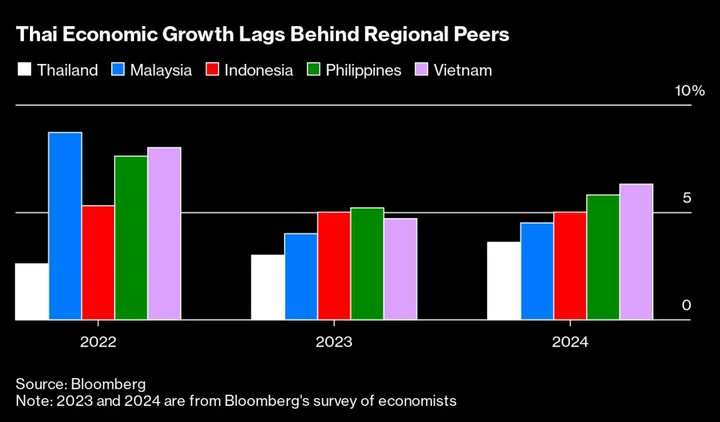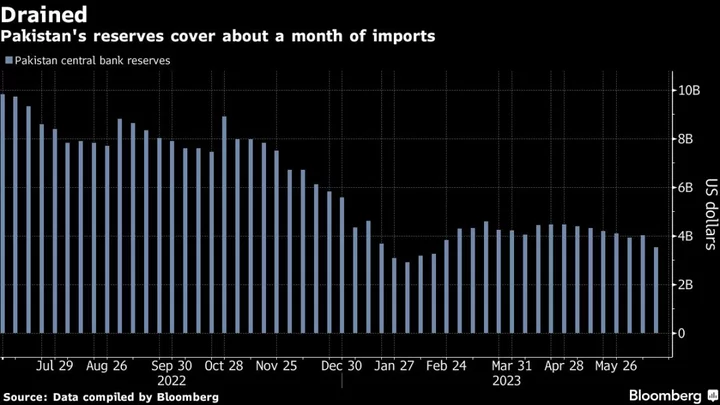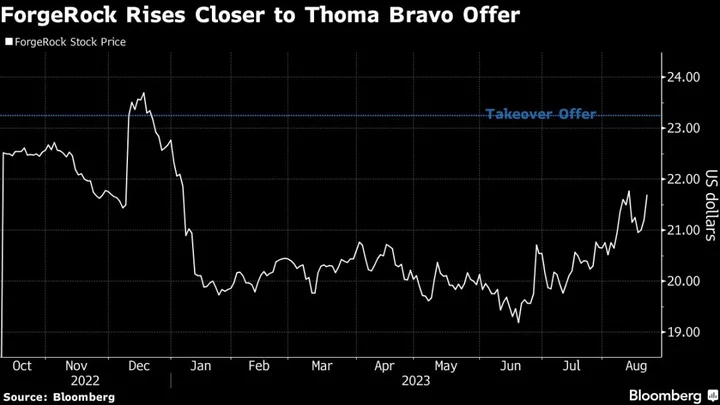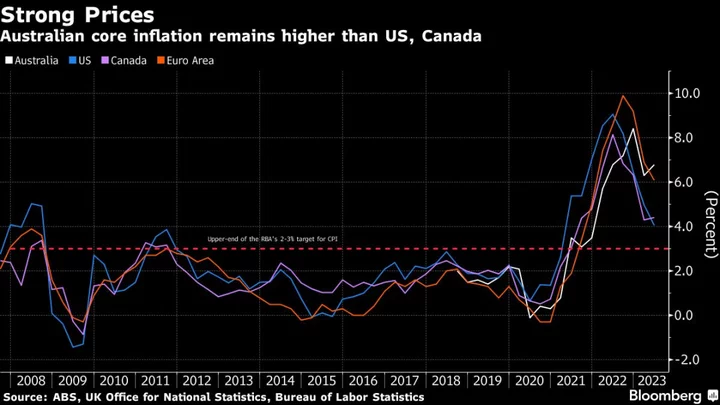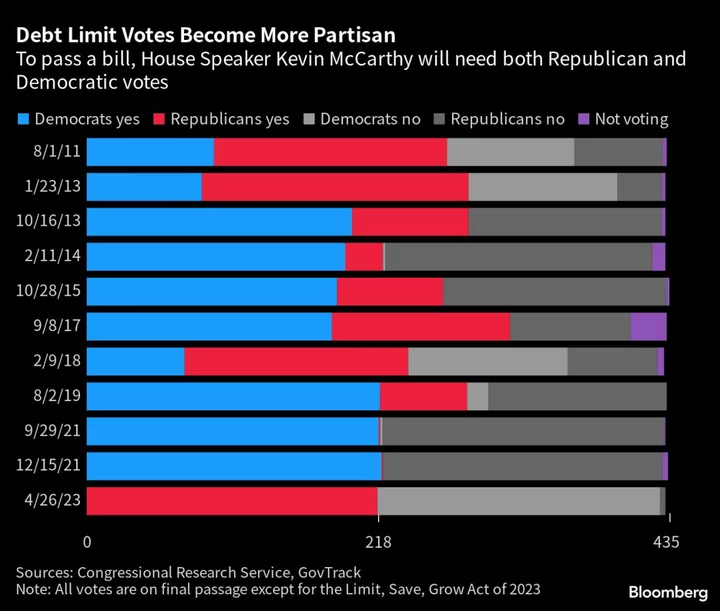Thailand plans to borrow 500 billion baht ($14 billion) in phases to finance a cash handout program to stimulate its economy, an official said, allaying concerns that the debt proposal may widen the fiscal deficit and jeopardize the nation’s credit ratings.
The borrowing will be spread over two to three years as the shops and vendors participating in the so-called digital wallet plan will not be cashing out in one go, Paopoom Rojanasakul, secretary to the finance minister and a member of the panel overseeing the program, said on Wednesday. The Public Debt Management Office, which manages Thailand’s borrowing, will carefully select the tools to fund the handout, he said.
Prime Minister Srettha Thavisin last week said the government will distribute 10,000 baht each to about 50 million Thais as a one-time measure to stimulate consumption and spur business activities. The move to resort to borrowing through a special bill as opposed budget financing that was previously indicated raised concerns about the program saddling the nation with long-term debt and fanning inflation.
The digital wallet is part of the government’s plans to stimulate economic growth to about 5% annually during his four-year term. The prime minister has repeatedly said the nation’s economy is in a crisis and in need of stimulus to end a cycle of low growth. Southeast Asia’s second-largest economy has grown an average 1.9% in the past decade, well below its neighbors such as Indonesia, Malaysia and Vietnam.
Read More: Thailand Goes Ahead With $14 Billion Handout to Prop Economy
Paopoom said “a big stimulus” plan was the need of the hour to accelerate economic growth from a projected 2.6% to 2.7% this year and little over 3% next year. With the budget to care for the elderly rising 5% annually and an aging population, only higher growth can raise resources to support them, he said.
“Thailand is staring at a fiscal abyss with an aging society,” Paopoom said. “We can’t go on like this. It’s like we are holding a bomb. We need higher economic growth.”
While the digital wallet program may be ready for disbursal by May, recipients will have six months to spend the money. Shops and vendors eligible to join the program will have two and a half years to cash out and they will be given some incentives to delay reimbursement, Paopoom said.
Thailand’s credit rating faces no immediate threat of a downgrade due to borrowing for the digital wallet as it will fuel growth and avert a surge in fiscal deficit as a ratio of GDP, Paopoom said. Rating companies also look at many other factors in their assessment, he said.
Fitch Ratings earlier this week affirmed Thailand’s rating at BBB+ and its stable outlook. It is also rated two notches above the lowest investment grade at S&P Global Ratings that the nation has retained since 2004.
Deputy Finance Minister Julapun Amornvivat told reporters separately on Wednesday that proposing a borrowing bill is more transparent and that the government’s majority seats in the lower house will enable the legislation to pass. The administration has no backup plan for now if it fails, he said.
(Adds comments from deputy finance minister in last paragraph.)

